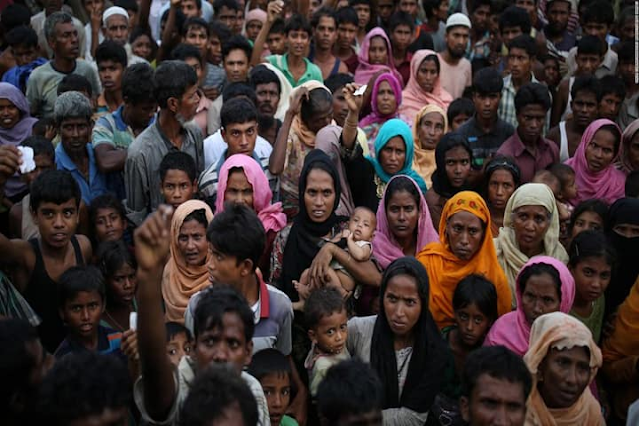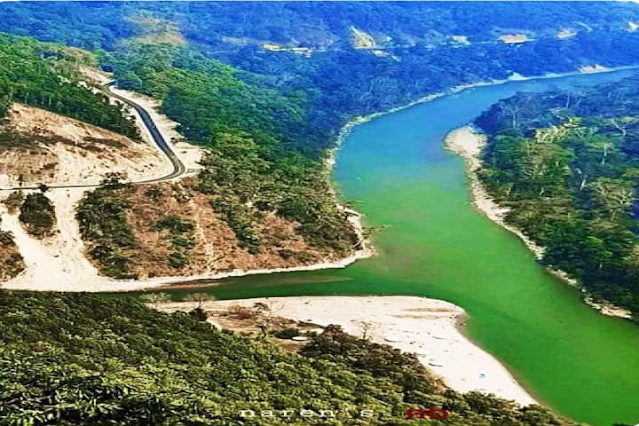SALEEM SAMAD
The recent spate of racial attacks on Ahmadiyya Muslims during their annual congregation at a sprawling complex in northern Bangladesh on a pretext that they are not ‘Muslims’ and demanded that the sect should be declared ‘non-Muslims’.
The perpetrators were radicalised Sunni Muslims, says political historian researcher and writer Mohiuddin Ahmad.
The Sunnis are majoritarian in Bangladesh, nearly 91 per cent. They have been indoctrinated by conservative Wahabi and Salafimanhaz at tens of thousands of Islamic theological seminaries (madrasas) dotted all over Bangladesh and authorities could not tame them to adopt secularism, the writer/researcher explained.
Ahmadiyya, a Muslim sect is a member of a minority religious community and are spread all over Bangladesh since 1913.
The Ahmadiyya are indeed conservative Sunni Muslims and are tolerant of other faiths, practitioners and beliefs. They regularly hold inter-faith dialogues with other religious leaders in their mosques, which prompted the radicalised Muslims to reject the place of worship as a mosque for Muslim prayers.
Last week, the Ahmadiyya Muslim Jama’at, Bangladesh, at a press conference in Dhaka expressed their satisfaction over the investigation of the civil and police administrations over the racial riots, and said their actions were deemed appropriate.
The sect’s disciples demands that the secular fabric for centuries and equal status of all religions, ethnic community and other minorities should be respected as guaranteed in the constitution. Roughly 100,000 Ahmadis live in Bangladesh today.
Ahmed Tabshir Chowdhury, spokesperson of the Ahmadiyya’s in Bangladesh told journalists that the civil administration and police swift action have saved hundreds of lives and properties in Panchagarh district, where the annual ‘Salana Jalsha’ was scheduled to be held.
The three-day annual congregation was abruptly cancelled when Islamists clashed with police after the Friday Jumma prayer on March 3. Hundreds of Islamists armed with sticks, metal bars and some with containers of flammable substances [police claimed it was gun-powder] in a bid to occupy the site of the congregation.
Earlier, the Ahmadiyya management had to postpone or cancel their annual congregation several times in the faceoff with angry Islamists over 32 years.
In an hour, the violence turned into the worst sectarian riot in living memory, which killed two persons, one was an Ahmadiyya. Nearly 85 persons were seriously wounded by the rioters. The protesters torched 185 homes, and 30 business establishments were looted.
Hefazat-e-Islam, an ardent advocate of strict Sharia swiftly said the “non-Muslim” [Ahmadiyya] should not have been given permission to hold the ‘Jalsha’ and instead blamed the “Qadiyani” [slang for Ahmadiyya] for the unrest.
The allocation of BDT one crore (IRS 7.6 million or USD 95,000) for rebuilding the damaged dwellings and shops by Prime Minister Sheikh Hasina sends a strong message to the perpetrators and others.
The district administration and police swiftly arrested more than a hundred rioters after identifying them from CCTV footage and other video footage. Others are on the run.
The onslaught of the Islamists in the last three decades on the Ahmadiyya properties and desecration of mosques in Brahmanbaria, Dhaka, Gazipur, Jashore, Khulna, Kushtia, Natore, Rajshahi, Satkhira, Sherpur and elsewhere, according to news published in media.
Since its establishment in Bangladesh at the beginning of the last century, the members of the Ahmadiyya Community have faced persecution from conservative Muslims. The perpetrators never faced the music of justice under previous governments.
The Islamist and radicalised Sunni Muslims demanded of the government to delist Ahmadiyya from Islam. The call was purportedly raised by Jamaat-e-Islami founder Abul Ala Maududi in 1953, leading to bloody atrocities which killed more than 2,000 Ahmadis in Lahore, Pakistan.
The [Ahmadiyya] fate was further sealed by Pakistan’s military dictator General Zia-ul-Haq, when he issued the anti-Ahmadiyya law on 26 April 1984, which prohibits Ahmadis from preaching or professing their beliefs.
Not to anybody’s surprise, Pakistan’s abandoned orphans [the Mullahs] born in Bangladesh are demanding similar repressive laws to ban and punish the ‘heretic’ Ahmadiyyas.
Islamist party Jamaat-e-Islami during Khaleda Zia’s regime in the mid-90s proposed a blasphemy law to punish the Ahmadiyya and secularists. Incidentally, the proposed bill was a photocopy of the blasphemy law of Pakistan.
The radicalised Islamic groups including the Islami Andolon Bangladesh, Majlis-e-Tahaffuz-e-Khatme Nabuwwat, and of course Hefazat-e-Islam believe the Ahmadiyya are heretic and demands that the sect should be banned and declared ‘non-Muslim’ like Pakistan in September 1974.
According to a thought-provoking article in the Dhaka Tribune, the Constitution of Bangladesh, which recognises Islam as the state religion, the state shall not discriminate against any citizen on grounds only of religion, race, caste, sex or place of birth.
Moreover, Article 41 states that (a) every citizen has the right to profess, practise or propagate any religion; (b) every religious community or denomination has the right to establish, maintain and manage its religious institutions.
Hypothetically speaking, Ahmad explained that declaring Ahmadiyya a heretic will cost Bangladesh dearly. The principles of the state constitution need to be overhauled and delete the clauses where secularism has been guaranteed.
More than a year ago, Prime Minister Sheikh Hasina at a press conference in defence of religious freedom and tolerance said if Muslims believe in the ‘Last Day of Judgment’ laid in the Holy Quran, then a Muslim cannot point fingers toward someone to judge who is a good Muslim or a bad Muslim.
Quran, the holy book of the Muslims says a day will come when the whole universe will be destroyed and time will end. The dead will be resurrected for judgment by the All Mighty. This day is the Day of Judgment where people will be rewarded by the Supreme Creator, according to their beliefs and deeds.
The video clip of her statement was broadcast from all TV channels in Bangladesh and is available on YouTube, where she rebukes the Islamist and radicalised Muslims, who have sworn to eliminate a certain community or religious practitioners (she did not name any religious group), should be banished from Islam.
The brutal birth of Bangladesh in 1971 which shattered the controversial ‘two-nation theory’ paved the way to establish a nation based on democracy, secularism, pluralism, equality and social justice. That legacy needs to be preserved and persevered in the future as well.
First published in the India Initiative, New Delhi, India on 29 March 2023
Saleem Samad is an award-winning independent journalist based in Bangladesh






